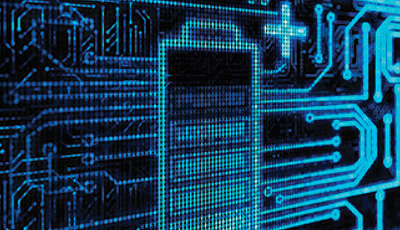 Germany is currently adapting to a new future in road transport – one that is automated, connected and electric. Home to OEMs and leading automotive industry supply companies but also endowed with a deep-rooted SME culture and a highly diverse research landscape, the Federal State of Baden-Württemberg is now trailblazing the design and development of these new technologies and applications.
Germany is currently adapting to a new future in road transport – one that is automated, connected and electric. Home to OEMs and leading automotive industry supply companies but also endowed with a deep-rooted SME culture and a highly diverse research landscape, the Federal State of Baden-Württemberg is now trailblazing the design and development of these new technologies and applications.
One of the major players is the Cluster Electric Mobility South-West. Funded by Germany's federal and state-level governments, this leading-edge cluster comprises more than 100 companies as well as 13 research institutions and universities working together under a cross-sectoral and interdisciplinary remit – a unique advantage when it comes to driving forward the right kind of innovations in e-mobility systems.
'Being sensible has never been so much fun. And being sensible means harnessing renewable energies for our roads in order to reduce pollutants and achieve net-zero GHG emissions. However, e-mobility is also fun because it offers simple, smart and direct solutions and – in terms of general appearance – many other advantages over conventional vehicles. The Cluster Electric Mobility South-West has become increasingly successful at promoting the industrialisation of electromobility.' Says Franz Loogen, Managing Director of e-mobil BW GmbH, the agency that coordinates the cluster’s activities. 'Our focus constantly revolves around the interplay of three key factors: fascinating technology, economic potential and ecological sustainability.'
DRIVING PROJECTS FORWARD
New materials, new parameters for component durability, new vehicle architectures and new concepts for workshop service and usage all require intensive development inputs. By way of example, in the current cluster project 'e-volution – integration of innovative concepts for a more efficient e-vehicle offering higher performance', Porsche AG is engaging and interacting with six partners in a bid to fulfil a research-driven objective in which preseries cutting-edge technologies from all sectors are pooled and expressed in one vehicle.
E-vehicles need advanced charging technologies. The project 'BiLawE' is developing a smart, bidirectional, inductive charging system: the driver simply parks the vehicle and its smart algorithms enable it to decide whether it needs to 'fill up' or whether it can feed power into the grid. With electrification, we are seeing the automobile morph from an end consumer to a component of the energy supply system. On the one hand, the state-of-charge window for plug-in vehicles can be attuned in order to balance fluctuations in renewable energy supply. On the other hand, e-vehicle batteries can serve as integrated energy stores and feed power back into the grid. The cluster project 'IMEI' focuses on e-mobility and energy supply integration in e-vehicle fleets and aims at integrating processes that are presently separate from each other, such as the scheduled delivery slots in urban zones and the daily load curves in the power grid. At its core, IMEI is asking how networked electromobility can help shaping the smart city and thus make it a quieter, cleaner and generally more attractive place to be.
AN INCREASINGLY INTERNATIONAL PLAYER
An orientation towards the global e-vehicle market is encoded in the genetic make-up of the Cluster Electric Mobility South-West. The vast majority of companies and research facilities concerned are international players. An example of the cluster’s international approach is its long-standing cooperation with the French region of Auvergne-Rhône-Alpes. To open the door to Europe for those SMEs that are not yet operating internationally, the cluster – with the support of Germany's Federal Ministry for Education and Research (BMBF) – is now set to strengthen the cooperation in Europe as of 2017.
Contact details:
For more information visit www.emobil-sw.de/en/